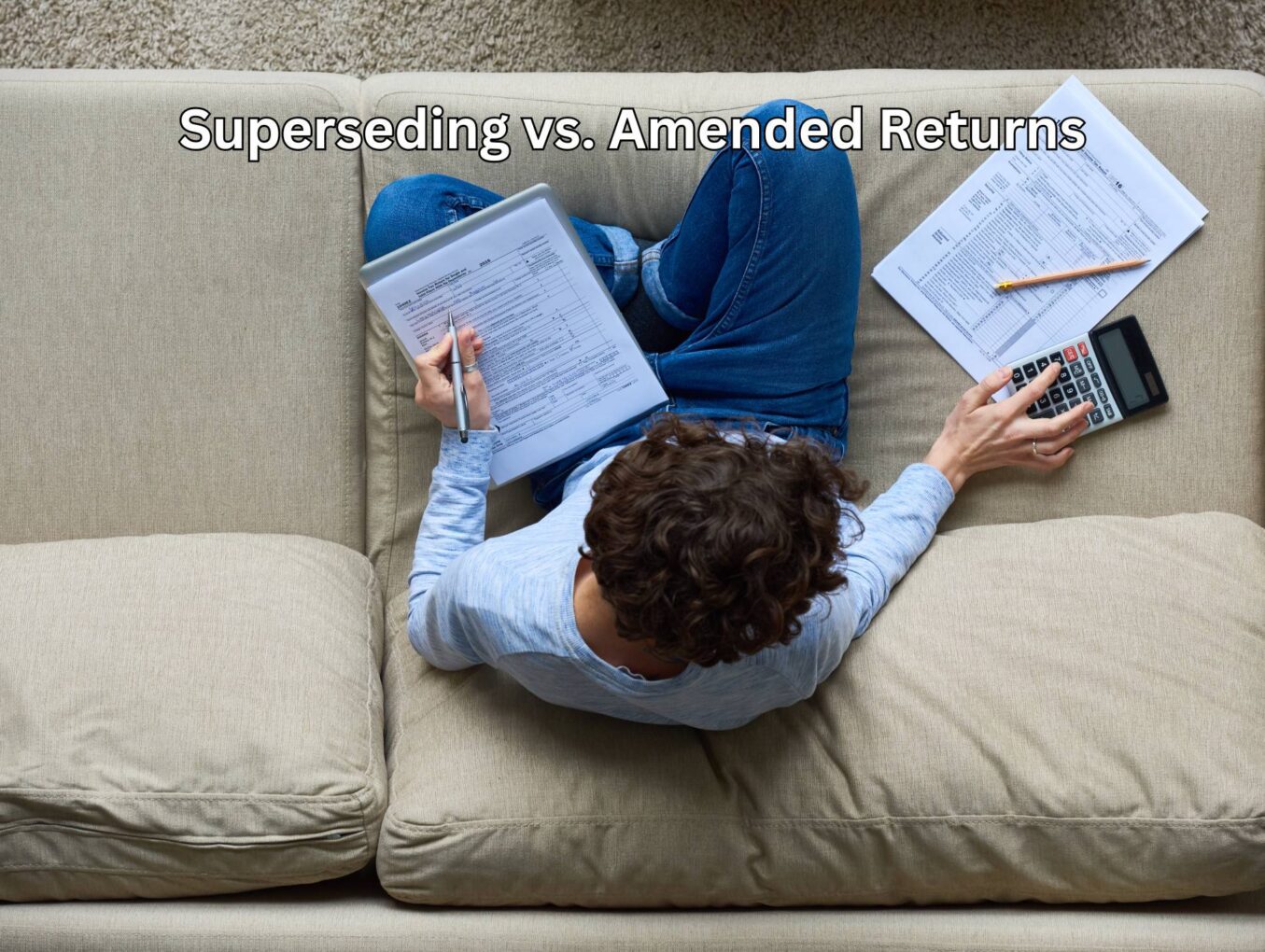What are Superseding Returns?
A superseding tax return replaces or “supersedes” the original tax return if the original return was filed before the tax deadline or extension due date.
Let’s say you filed your federal taxes early in February. Upon rechecking your return in March, you discover errors and want to file a new tax return.
Since the IRS typically assigns April 15th as the deadline for filing, you can submit a superseding return before then to correct the errors.
What are Amended Returns?
Amended returns filed using Form 1040-X differ from superseding returns because they are filed after the April due date or October extension and do not replace your original return.
For example, if you filed in April and are notified by the IRS in May that your 1040 has errors, you can file an amended return with corrections.
Since 1040-X does not supersede your original return, you will also have to tell the IRS what you are changing and explain why.
How Do Amended and Superseding Returns Affect Your Refund and Tax Liability?
Superseding returns replace your original return, which means the IRS calculates a refund or tax you owe as if the original return was never filed. Your refund or liability can increase or decrease depending on changes to income, deductions, and credits made with a superseding return.
Since amended returns do not replace original returns, you could receive another refund or need to make a tax payment depending on what changes between the amended and original returns.
Also, be aware that interest accrues on any unpaid tax liability, even if you did not know you had a liability when you filed your original return.
The IRS usually processes superseding returns more quickly since they are considered original returns. Amended returns can take longer.
This means refunds may be delayed or additional interest accrues between the time you file the amended return and the IRS determines you owe more taxes.
Is It Better to File a Superseding Return or Amended Return?
When possible, it is better to file a superseding return. They are processed more efficiently and allow you to make specific changes that you cannot with an amended return.
Superseding returns also completely replace the original return, which can help you avoid dealing with more complex and expensive IRS issues.
For example, you fail to include a substantial amount of income on your original return and file a superseding return to add it. In this case, the IRS will not hit you with a 20% accuracy-related penalty plus interest charges.
Although you did originally file an inaccurate return, your superseding return erases that return from the IRS system. Claiming credits and deductions you do not qualify for can also be corrected with superseding returns.
Can You File Both Amended and Superseding Returns?
Yes and no. A superseding return can be filed before the tax deadline, followed by an amended return if additional errors are discovered after.
In other words, original return → superseding return (before due date) → amended return (after due date). Keep in mind, however, you cannot file a superseding return if you submit an amended return before.
What Is the Process for Submitting Superseding and Amended Returns?
If you are filing electronically, forms 1040, 1040-SR, 1040-NR, and 1040-SS now have checkboxes added to indicate you are filing a superseding return.
So, you can simply fill out a new 1040 and indicate that it is superseding. A separate form 1040-X must be used to file amended returns. You can submit a 1040-X online as well.
A key difference between filing a 1040 and 1040-X is that 1040-X asks you to explain changes you are making and to include supporting documents such as new or updated forms and schedules.
Once you file, amended returns can be tracked at https://irs.gov/filing/wheres-my-amended-return.
Do You Have More Time to File an Amended Return or Superseding Return?
In most cases, you have more time to file an amended return. You must submit a superseding return within the same tax year as the original return whether you file by the April deadline or October extension.
Amended returns have a longer submission timeframe. It is either three years from the date you file the original return or two years from the date you pay the original taxes.
However, if you wait two or three years to file an amended return and you owe the IRS, you will have to pay interest for those years in addition to your taxes.
Need more help? You can start online by answering 6 simple questions.
6 Simple Questions. Free Evaluation.

